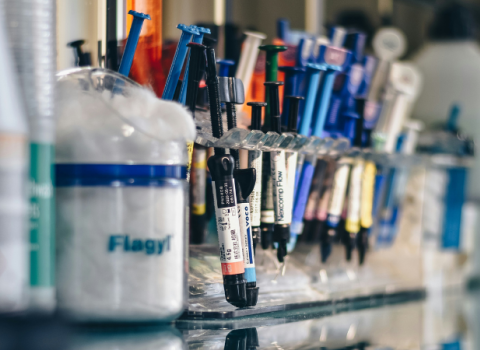Collaboration opportunity
Researchers at the Roslin Institute in Edinburgh have developed a method for robust and quick generation of transgenic mammals (other than the mouse) using lentiviral vectors.
Whilst robust methodology exists for generating transgenic mice, for larger animals the length of time and number of animals required has limited studies in transgenic livestock.
Now, researchers at the Roslin Institute have devised a method using lentivirus vectors to deliver transgenes, significantly reducing both the time taken and the number of animal required to generate transgenics.
This will enable the benefits of using large animals in preclinical studies, such as ease of surgical intervention, relevance to human of physiology and anatomy and lifespan, to be used to advance both animal and human health.
The technique can be used to generate animal models of disease, for use in preclinical studies and to generate transgenic mammals that produce human proteins.
Roslin is looking for industrial partners who would be interested in collaborating on generating new animal transgenic models of disease, preclinical research tools or transgenics for the production of human proteins.
For more information, visit the project’s page at: http://www.university-technology.com/details/large-animal-transgenesis





 A unique international forum for public research organisations and companies to connect their external engagement with strategic interests around their R&D system.
A unique international forum for public research organisations and companies to connect their external engagement with strategic interests around their R&D system.